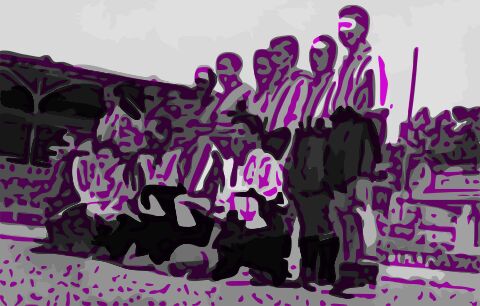Today’s throwback piece comes from August 2018 and our sister site Tale of Two Halves – with Athletic Club going well in La Liga this season, it is good to talk about their Basque-only policy.
It is not often that Roman Abramovich is summoned to dig deeper into his pockets by a club that finished 16th the previous season. However, Athletic Bilbao is no ordinary team when it comes to the transfer negotiation table and the fact that Chelsea’s Russian oligarch owner was rebuffed twice only adds to this stubborn reputation.
Chelsea’s bids of £50 million and £60 million for Athletic’s Kepa Arrizabalaga were rejected without hesitation. There is no negotiation with Athletic Bilbao; either meet their demands or leave empty-handed. For Chelsea, the demand was £71 million – a world record fee for a goalkeeper.
As financially responsible as it is to extract large fees when they do offload players, Athletic are constantly left with a very shallow market for potential replacements. To be more precise, their recruitment policy is confined geographically to the Basque Country, the region of Navarre as well as the Northern Basque Country in France.
This is not a groundbreaking revelation. Athletic pride themselves on this unwritten policy as a key pillar within their illustrious history, one that echoes undertones of the Basque separatist movement and their political struggle for independence from Spain.
The stats support this financial disparity between imports and exports when we gaze into the club’s transfer dealing portfolio of recent years. €140 million has been accrued in the past year from both Kepa Arrizabalaga and Aymeric Laporte alone – both academy graduates.
€56 million has been spent since the turn of the year with Inigo Martinez joining from Real Sociedad for a club record €32 million in January. Meanwhile, this summer saw Athletic act fast to sort a frustrating problem position at left back with the signing of Yuri Berchiche from Paris Saint Germain – an astute signing and a player very much in his most bountiful of playing years at the age of 28. However, lingering under a very harmonic surface in Bilbao is a question of whether this money could be spent on a higher quality of players outside of the transfer exclusion zone.
This question has been exasperated by the Kepa deal as this money has little value in the Basque transfer market.
A return to the great Bilbao team of 2012 that reached the Europa League final further highlights a similar trend. Javi Martinez would be snapped up by Bayern Munich for €40 million only a few months later while Ander Herrera followed suit two years further down the line when he left for Old Trafford at the cost of €36 million. These players were never replaced like-for-like in the transfer market and so a period of stagnation ensued as the academy production line worked overtime to fill the gaps.
Surely Athletic’s academy success has an expiry date. Something has to shift if the club aims to break through the glass ceiling and progress towards regular silverware instead of merely keeping their head above water.
It can be argued that more money could be pumped into Cantera – the club’s esteemed academy. However, there is only so much that can be done to enhance an academy that already harvests every young talent that the Basque Country has to offer while simultaneously offering an envied coaching setup and structure for progression attached.
Any given week at the academy will see representatives of some of Europe’s biggest clubs visiting as they partake in the footballing coach’s equivalent of a religious pilgrimage – talking to other coaches, breathing in the surroundings, scribbling down notes and ultimately scratching their head as to just what the secret for success is and why Bilbao have it in such an abundance. Swansea, Bologna, Bayer Leverkusen – you name it. Every club wants a bit of Athletic’s internal success.
As the Kepa deal further reinforced, Athletic are in no need to sell players. They are in an excellent financial position and are notoriously one of La Liga’s most efficiently run clubs. However, lining their own pockets while watching on with their face pressed up against the proverbial shop window of Europe’s mainstream transfer market, only able to look but not touch, must be incredibly frustrating at times. Wishful thinking must take hold amongst certain fans from time to time, envisaging the sort of side that could be acquired if some of those savings could be used further afield.
However, for the most part, the club and its worshipping fan base are very much on the same page, well aware of realistic expectations when it comes to transfers. Although last season’s 16thplace finish came alarmingly close to eradicating Athletic’s shared achievement with Barcelona and Real Madrid of never being relegated, there is little doubt amongst fans that it was anything more than an anomaly.
There is much promise ahead of the start of the new campaign and with new manager Eduardo Berizzo having a deep pool of players at his disposal, there is no reason why Athletic cannot push for the European places.
Meanwhile, Kepa’s replacement has already been promoted to the first team. Alex Remiro has followed Kepa closely along the conveyor belt that is the Cantera academy. He had a very impressive loan spell at second-tier Huesca last season and will be looking to fill the void left between the sticks. The same age as Kepa, Remiro is fully expected to be the next great Athletic Bilbao keeper and quite possibly the next big pay-day.
In terms of a player to offload their financial arsenal on in the short term, Real Sociedad’s promising left winger, Mikel Oyarzabal, has been rumoured as a target. However, if Athletic are to once again raid their Basque neighbours 100 kilometres east along Spain’s Cantabrian highway in San Sebastien, they will need to bring along with them the vast majority of the money from the Kepa deal. Oyarzabal has a release clause of €50 million in his contract to all clubs outside of the Basque Country. As a result, Athletic would have to pay an additional €10 million premium to secure his services – an example of the financial enclosure that Athletic have penned themselves into.
They are scouring a very niche market. Furthermore, a player that could be signed is rarely worth the tag on his head, as a more talented or well-rounded player is usually available for the same, if not less, elsewhere, with the catch being they’re not of Basque heritage.
In terms of a solution, it is few and far between. There is no realistic expectancy for Athletic to abandon their transfer policy – an integral component of their identity. However, as transfer fees continue to rise into the abyss, self-sufficient clubs like Athletic can only bathe in financial gain for so long. The production line cannot maintain the rate with which cheques are being cashed at Athletic’s Lezama headquarters every time the summer transfer window rolls around.


